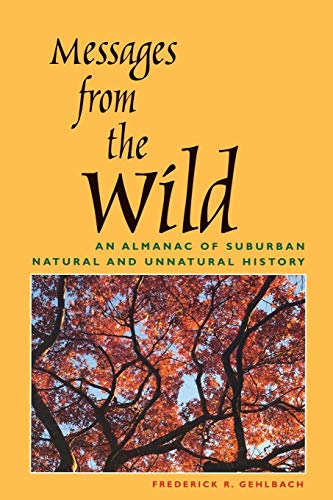Thirty-five years of nature walks and journal entries contributed to this personal and detailed account of the climate, topography and life forms of a semi-wild ravine in suburban Texas.
Beginning in the mid-1960s, naturalist Frederick Gehlbach began recording biological events like the date of the first frost, the laying of eggs by screech owls, the number of growing days and even the first day the air conditioner was turned on in his home. These records provide a unique baseline data set from which he discusses, in this book, how the natural cycles in the ravine have been affected by local and global events.
An inspiration to anyone who keeps a nature journal, Gelbach's book combines eloquent accounts of his daily interactions with the natural environment with the factual data he has painstakingly collected. The result is a fine correspondence between the personal and the objective, the emotional and the scientific.
Attending to messages from the wild is critical to our survival, both as individuals and as a species. "Nature tells us what has worked or not over the long history of life -- how our natural heritage still operates or doesn't," Gehlbach points out. "The messengers do not hoard resources unnecessarily, because the costs exceed benefits, but interact in ways that allow reciprocity, because that's the only directive for survival. Their messages imply that the longer we wait for reconciliation and reconnection with the natural word, the fewer options we'll have, because we'll have cut too many lines from the script and eliminated too many actors."
